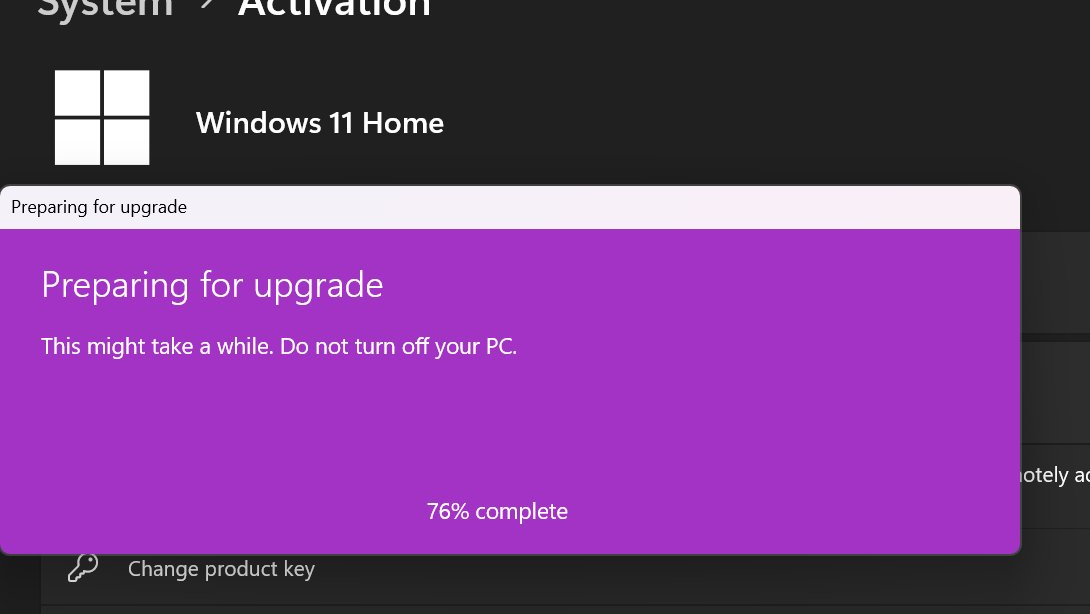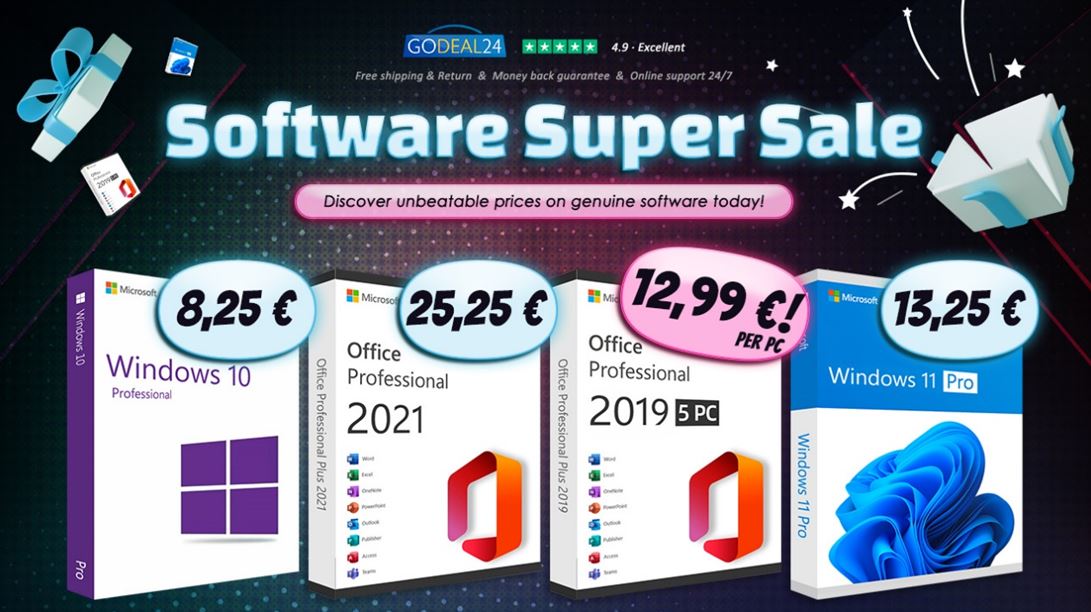Top 10 Tips On "Too Great To Be Real" Prices When Buying Windows 10/11 Pro/Home Products
It is not uncommon to see "too-good-to be real" pricing when purchasing Windows 10/11 Pro and Home license keys to activate the product. These deals can be appealing, but are often accompanied by potential dangers that are not obvious. These are the 10 best tips for avoiding issues when you come across price tags that seem low.
1. Compare to Prices from the Official Pricing
Check the Microsoft Store, the official Microsoft Store or reputable retailers like Amazon, Best Buy, or Newegg to find out the average cost of a genuine Windows license.
A substantial discount (more than 50%) over the price normally charged could mean that a lock is copyright, illegal, or stolen.
2. Understanding Common Price Ranges
A genuine Windows 10/11 Home key typically is priced between $100 and 140 dollars.
Windows 10/11 Pro keys can cost between 140 to 200 dollars. Anything that is less than these prices is a red flag.
3. Suspiciously low prices are often the sign of illegal suppliers
Keys that are sold at $5, $10, and $20 are likely to come from unlicensed or illegal sources, such as:
Items stolen from purchases made legally
Acquired through illegal volume licensing.
The program that generates this product is an act of piracy.
Microsoft might not provide support to you if you purchase such keys. It is possible to be deactivated, face legal issues, or lose Microsoft support.
4. Avoid "Lifetime Activation" Guarantees
Beware of salespeople who offers a "lifetime activated" key at an astonishingly affordable price. Keys like this can override Microsoft activation processes. This could lead to problems during updates, or if Microsoft detects the bypass.
5. Check the Credibility of the Seller
Verify a seller's credibility if they offer a key for the price of a huge discount. Check their history as well as customer reviews and ratings. A trustworthy seller has a solid history, and has numerous reviews that are detailed and favorable.
Sellers with an unestablished reputation or bad feedback will likely be copyright keys.
6. Beware of sites that are recognized to be using "Gray Market" keys
Certain platforms are known for providing cheap keys. The keys might not always comply with Microsoft's legal guidelines, or be supported. While you may think you are getting a good deal but the keys you purchase may not function properly.
You should only use sites that have a robust program of buyer protection.
7. A warning sign is the absence of support or warranty
Most official retailers offer customer support and warranty on their software. Keys sold by sellers that are cheap usually do not provide assistance or a warranty. This could be a sign of the legitimacy of the seller.
Unauthorized sellers are not able to provide any assistance if the activation is a problem.
8. Watch out for "Digital only" sales that aren't backed by reputable platforms
Scammers often provide Windows keys that are "only digital" at a very low cost through email or other online platforms, without utilizing any reliable e-commerce sites.
Ensure digital-only keys are purchased by using platforms that have been around for a while and have a strong reputation for selling software.
9. Volume licenses are not accessible to individuals.
There are sellers who offer inexpensive keys, under the pretense of the claim of a Volume License. The claim is that they're legal to use for personal purposes. Volume Licenses are only utilized by companies, educational institutions and government agencies.
Purchasing an VL key on your own is not only not in compliance with Microsoft's rules, but also a risk since Microsoft can remove it at any point.
10. Look for activation steps that are different from the standard procedures
Be wary of sellers who gives complicated activation directions for activation, like calling a specific number, completing manual steps or using third party applications. Genuine Windows keys should activate easily using the built-in tools of the system or via your copyright.
The standard activation process is as easy as entering your product's code while installing or logging to your copyright.
A Quick Overview of Red Flags
Prices that are well below market rates.
Sellers that don't have a reputation.
Sales of "digital-only" products with little support or transparency.
The claims are made of "lifetime activation" keys, or keys which aren't transferable.
Manual or complicated activation procedures without involving Microsoft.
You can stay clear of the "too-good-to be real" trap by following these guidelines and making sure that your Windows key will last. Follow the top rated windows 11 home activation key for blog recommendations including windows 11 license key, buy windows 11 pro key, key windows 11 home, buy windows 10 pro license key, windows 10 and product key, buy windows 10 pro key, buy windows 11 pro key, windows 10 license key purchase, windows 11 pro product key, buy windows 11 product key and more.

Top 10 Tips On License Type When Buying Microsoft Office Professional And 2019/2021/2024
When buying Microsoft Office Professional Plus 2019 2024, 2021 or 2021 It is essential to know the license types that are available to ensure that you're getting the correct one to meet your requirements. The terms, limitations and support options of different types of licenses differ. Here are ten suggestions to guide you through different license types.
1. The most commonly used types of licenses
Microsoft Office Professional Plus is available in a variety of types of licensing options which include Retail, OEM, and Volume Licensing. Each type of license is subject to specific terms and restrictions:
Retail: A one-time purchase, usually associated with a single user. It is transferable (within the user) to an additional device.
OEM A device that is only installed on the original device. It cannot be transferred. It's usually less expensive however it's also less flexible.
Volume Licensing offers an adaptable solution for large numbers of users.
2. Retail licenses for flexibility
A retail license gives you the most flexibility. You can install Office on any device and later transfer the license to an upgraded computer or a new one. This is a great option for those who may need to change their computers or upgrade their hardware.
3. OEM Licenses at a Lower Cost
OEM licenses are more expensive, however they are tied to a specific device and are not transferable. These licenses are only available for computers with Office installed by the maker. OEM licenses can be less expensive but will limit the options for customization if you build or upgrade your custom computer.
4. Understanding Volume Licensing
Volume Licensing can be used by businesses, government organisations, and educational institutions. This is the most economical if Office is being purchased for a large number of users and devices. Office also offers benefits like central administration, a more simple installation process, and bulk discounts.
5. Multiple Device Licenses Multiple Device Licenses
Retail licenses usually cover one or two devices. (Example laptop and desktop laptop) Volume Licenses however, on the other hand, can cover thousands or hundreds of devices, depending on the terms of your agreement. Before you purchase, make sure you are aware of the amount of devices covered by the license.
6. Look for transferable licenses
Licenses for retail are typically transferable between devices (as long as they are deactivated on the previous device) However, OEM licenses are tied to the first device and cannot be transferred. If you are planning to switch computers often, this is an important factor to consider.
7. Take a look at User Licenses and Consider Device Licenses
Some licenses can be assigned to users while others to devices. If you are looking to buy Office for a single person who is able to access Office from multiple devices, you should search for licenses based on users. This includes subscriptions for Microsoft 365 or Volume Licensing.
8. Be sure to check for updates and help
Microsoft usually provides full support for retail licenses and volume licenses are also supported by regular updates. Contrarily, OEM licenses may have limitations on support and the software might not receive updates after the device that it is tied to is not supported anymore by the manufacturer.
9. Understand Licensing for Upgrades
Volume Licensing and Retail Licenses can give you the right to upgrade Office to the most current version at a discounted cost or through Microsoft Software Assurance.
OEM licenses do not usually come with the right to upgrade. This means that you'll have to purchase a brand new license to upgrade to the latest version of Office.
10. License Agreement Terms
When purchasing any version of Office Professional Plus, always go over the terms and conditions of the license agreement that is provided by Microsoft. This will outline any transfer restrictions, restrictions, or rights to utilize the software on various devices or for certain purposes (e.g. commercial use as opposed to. private use). Understanding the terms helps you to avoid any unexpected limitations.
Conclusion
The appropriate Microsoft Office Professional Plus license depends on the needs of your company, or an individual. Understanding the distinctions between Retail, OEM, Volume Licensing is crucial to help you make a decision that's dependent on your requirements in terms of the flexibility, cost, support and the ability to scale. Check the licensing conditions to ensure you're purchasing the correct version. Have a look at the most popular Office 2021 download for blog recommendations including Office 2019, Microsoft office 2024 download, Office 2019, Office paket 2019, Office 2019 product key, Microsoft office 2024 download, Office 2019, Office 2021, Microsoft office 2019, Ms office 2024 and more.

Comments on “Recommended Guide On Picking Windows Microsoft Office Professional Key Sites”